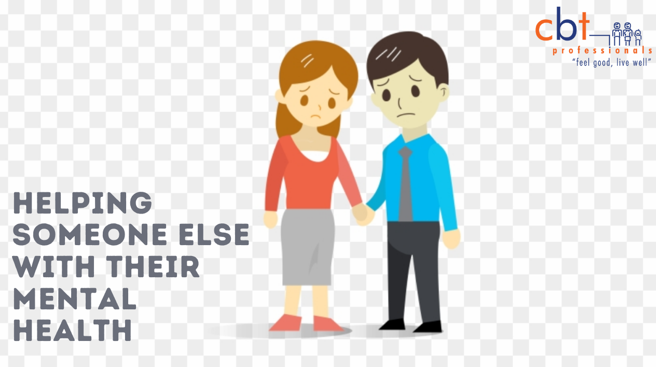Helping someone else with their mental health
We all have mental health struggles that affect us differently. Our loved ones or people we know can suffer the same as us. Helping someone else with their mental health can be tricky. You might have noticed a shift in your friend’s behaviour or demeanour, a family opens up to you for the first time or a colleague is coming to work late and is always tired. Different signs can lead to concern, and it can be challenging to know what to do or say from there. Helping someone with their mental health can be the difference between them getting help and suffering. Educating yourself about mental health conditions can be the foundation for the best support. In the meantime, here are 8 tips that you could use to support someone with their mental health.
-
DO listen and validate
Ask your loved one or friend that is struggling questions that allow them to talk about their experiences. Validate their experiences and allow them to feel heard and accepted. Judgment and blame are what many people feel when struggling, so allowing them to feel comfortable sharing is crucial.
-
DO normalize talking about mental health
You don’t have to wait for them to bring up their struggles. You can remove the stigma around mental health with your loved one and help them feel comfortable talking about their mental health. Like how we talk about going to the doctor, or dentist, we can talk about taking care of our mental health.
-
DO celebrate their wins
Cheer on their accomplishments and victories. A person could be facing a day full of challenges, so affirming their feelings can help them just that little bit more. Many people struggling already feels guilt, so celebrating with them affirms their hard work towards better mental health.
-
DO offer to help with their everyday tasks
Basic daily tasks and decisions can be hard for someone struggling. Try to be specific about what you want to help them with, as “I’m here if you need me” may be too generic. Your loved one could feel like a burden, so figuring out what they need will help them mentally and physically.
-
DO check in regularly
People struggling can feel guilt from burdening people’s time, energy, and mental space. By consistently checking in, you remind them that you are on their side and there for them.
-
DO ask what they need
Support is different to everyone, so you need to try and figure out how to best help them. “How can I support you?” or “What would be helpful to you”, are two phrases that could be helpful to your loved ones.
-
DO familiarise yourself on what they’re struggling with.
You can remove the hurdle of not understanding what they are struggling with through reading up on the illness. You can educate yourself on what they are going through. There are plenty of blogs and articles that cover topics like depression, anxiety or eating disorders. These can give you the knowledge to look for signs and behaviours that are associated with what they are experiencing.
-
DO recognize mental health struggles look different on everyone
Reading up on their issues can help, but mental health struggles look different on everyone. Some people might struggle in difference ways, and different disorders affect their behaviours. The most important thing is to not expect them to “get over” it, it is a process. Use all these tips and remind them you are there for them and will help them as best as you can.
It can be difficult to know when it is past the point of your support, and extra help is needed. Supportive family, friends and colleagues are a crucial part of a great support system. It is important to know what to say or do when you are worried about someone struggling. You can seek guidance from a health professional if their mental health deteriorates, or believe they are at harm at hurting themselves. Helping someone with their mental health is great, but don’t let it compromise your happiness.
If you or someone you know is struggling, you can contact Beyond Blue. If it is a crisis and urgent, please contact Lifeline on 13 11 14 or Police and Ambulance on 000.
CONTACT US
If you find your family member is struggling too much and needs additional help, please download our referral form here and take it with you to your GP appointment for preparation of a referral. You can call us with enquires into how to book and we can answer any questions they have.
You can also call:
Helensvale: (07) 5551 0251
Mount Gravatt: (07) 3102 1366
Nerang: (07) 5668 3490
with any enquires into availability or booking appointments!
Disclaimer: Content on this website is provided for education and information purposes only and is not intended to replace advise from your doctor or registered health professional. Readers are urged to consult their registered practitioner for diagnosis and treatment for their medical concerns.
THREE CONVENIENT LOCATIONS
MOUNT GRAVATT
Mt Gravatt Medical PrecinctSE 105, 1808 Logan Rd
Upper Mount Gravatt QLD 4122


